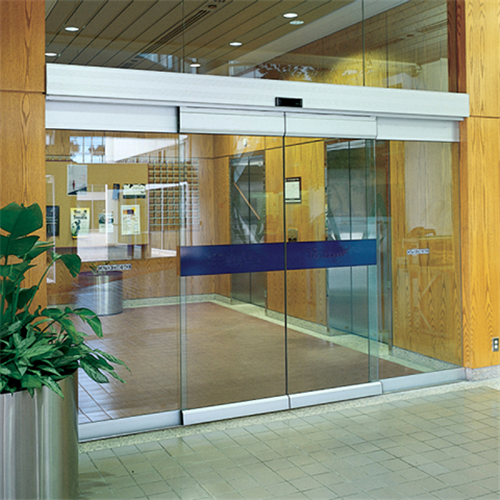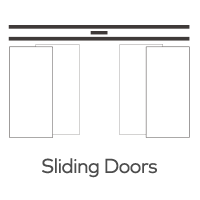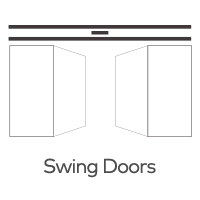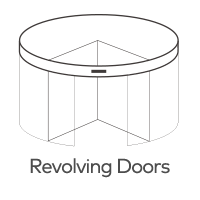Are glass door sensors compatible with different types of glass doors?
Glass doors are increasingly popular in both residential and commercial settings due to their aesthetic appeal and ability to create an open and airy atmosphere. When it comes to enhancing the security and safety of glass doors, glass door sensors play a crucial role. However, many individuals are unsure about the compatibility of these sensors with different types of glass doors. In this article, we will delve into the topic, examining whether glass door sensors are compatible with various types of glass doors and shedding light on the factors to consider for optimal functionality.

Types of Glass Doors: Glass doors come in different forms, such as tempered glass, laminated glass, insulated glass, and frosted glass, among others. Each type has distinct characteristics and structural properties that may impact the compatibility of glass door sensors.
Compatibility Considerations:
1. Thickness and Weight: Glass door sensors are typically designed to accommodate doors within specific thickness and weight ranges. It is important to check the specifications of the sensor and compare them with the thickness and weight of your glass door. This ensures that the sensor can be securely installed and function effectively.
2. Glass Composition: Different types of glass have varying structural properties. For instance, tempered glass is known for its strength and durability, while laminated glass consists of multiple layers for enhanced security and sound insulation. Glass door sensors should be compatible with the specific composition and structural integrity of the glass to ensure reliable operation.
3. Mounting Options: Glass door sensors may offer different mounting options, such as adhesive mounting, screw mounting, or surface-mounted brackets. The chosen mounting method should align with the type of glass door and its frame to ensure a secure and stable installation.
4. Sensor Technology: Glass door sensors utilize different technologies, such as infrared sensors or magnetic reed switches. These technologies may have specific requirements or limitations concerning the type of glass they can effectively detect or sense. Understanding the sensor technology and its compatibility with your glass door is essential for optimal performance.
5. Consulting Experts: To ensure compatibility and proper installation, it is advisable to consult with experts or professionals in the field. They can provide insights based on their experience and knowledge, assess your specific glass door requirements, and recommend suitable glass door sensor options.
Conclusion:
The compatibility of glass door sensors with different types of glass doors depends on various factors such as thickness, weight, glass composition, mounting options, and sensor technology. While many glass door sensors are designed to be versatile and accommodate a range of glass doors, it is important to consider these factors to ensure optimal functionality and performance. Consulting experts in the field can provide valuable guidance and recommendations based on your specific glass door requirements. By selecting the right glass door sensor and ensuring a proper installation, you can enhance the security and safety of your glass doors, providing peace of mind for both residential and commercial settings.







